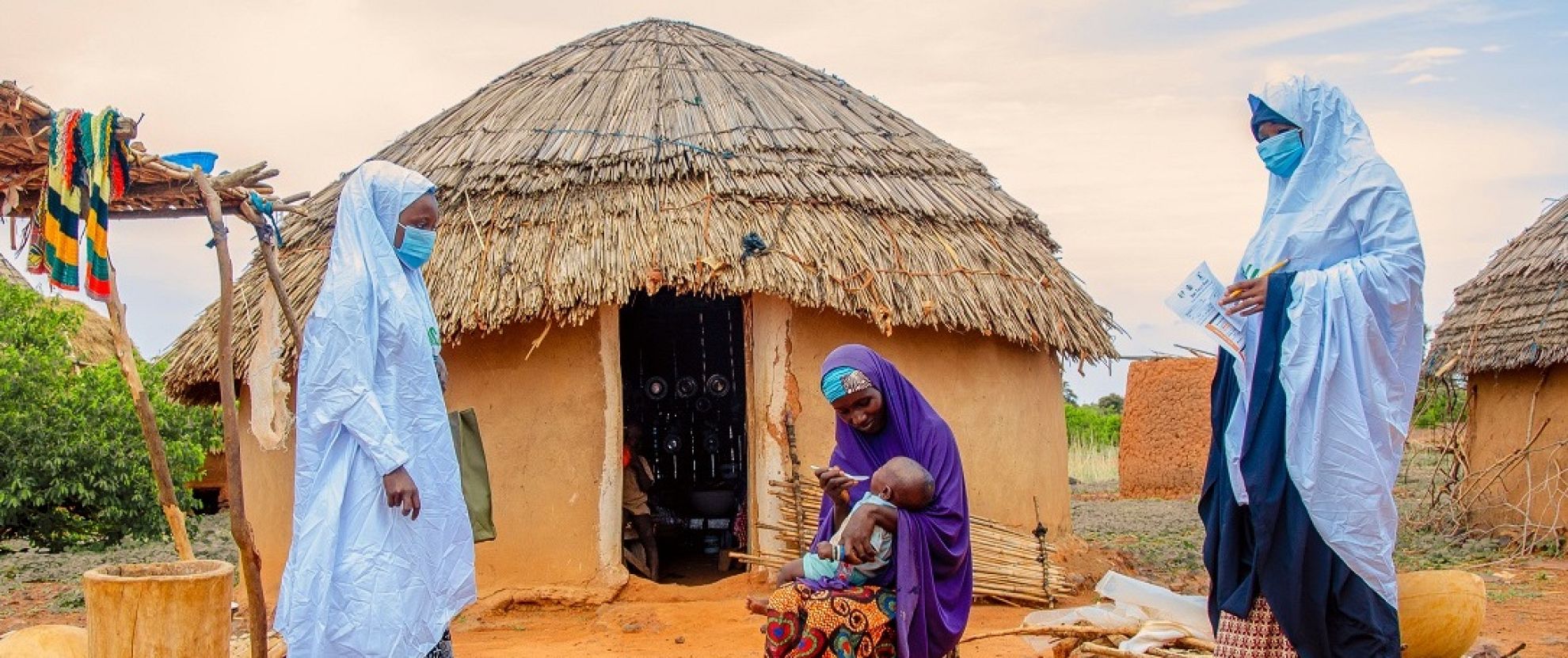
Malaria and COVID-19 – what can we learn from Nigeria?
27 August 2020In 2018, Nigeria accounted for 25 percent of the world’s malaria cases and continues to have one of the highest burdens of malaria today. In a time of fear and disruption amidst COVID-19, there were serious concerns about how far behind Nigeria might fall in the fight against this pernicious disease.
And yet, against the odds, malaria interventions in Nigeria are being maintained and, in some cases, increased despite the challenges posed by a global pandemic. The Nigerian National Malaria Elimination Programme (NMEP) alongside non-governmental partners including Malaria Consortium have been responsive, working together with state health teams and communities to ensure that malaria stays high on the agenda.
Speaking on August 25th at a media briefing hosted by the RBM Partnership to End Malaria and the African Media and Malaria Research Network (AMMREN), Malaria Consortium Nigeria Public Health Specialist and Programme Manager John Dada said:
“Following early predictions from the World Health Organization that severe disruptions to malaria prevention and control campaigns caused by COVID-19 could double the number of deaths from malaria, Malaria Consortium was committed to adapting our programmes to ensure we would not find ourselves in this dire situation. Malaria Consortium is playing a primary role in sustaining collaboration with other RBM partners in the national programme to ensure our efforts towards a malaria-free Nigeria are coordinated and harmonised as we address the COVID-19 pandemic and beyond.”
In Nigeria, Malaria Consortium has led in developing operational guidance, outlining extensive, enhanced safety and infection prevention contingency measures to ensure uninterrupted delivery of malaria services. Despite the unprecedented situation, 2020 has seen Malaria Consortium's largest ever seasonal malaria chemoprevention (SMC) campaign to date, expected on completion to reach over nine million children under five in Nigeria alone. Current interventions in Nigeria have also supported the distribution of long lasting insecticidal nets (LLINs), malaria diagnostic testing and treatment of malaria and other childhood illnesses for children under five, intermittent preventive treatment in pregnancy (IPTp) and social and behaviour change work.
Public engagement, collaboration with partners and adaptive programming have been key to maintaining malaria prevention activities in Nigeria. Virtual meetings, planning, document reviews and trainings have become common place, community and religious leaders have had greater involvement in communicating important health messages. The distribution methods of LLINs and SMC have been adapted to incorporate social distancing and other safety measures, and patients in some hospitals and health facilities presenting with fever are being tested for malaria on arrival.
Many of these innovations will endure beyond COVID-19, leading to greater health system resilience, ensuring Nigeria maintains progress towards the goal of malaria elimination. But without this resilience, including improved supply chains, better data, increased community health worker capacity and greater access to life-saving treatments, these lessons will not be enough – continued focus and investment in malaria prevention and control is essential to achieving this.
Learn more about Malaria Consortium's response to the pandemic on our dedicated page.
Latest news
- Malaria Consortium honoured by Ugandan government for contribution to combat malaria23rd April 2024
- International summit calls for AMR accountability in public health interventions21st March 2024
- Global SMC community celebrates new milestone at SMC Alliance Annual Meeting in Nigeria6th March 2024
- Scaling up key interventions could halve pneumonia-related childhood mortality13th February 2024
- Malaria Consortium and eGov Foundation join Mozambique’s national malaria programme to digitalise seasonal malaria chemoprevention campaigns8th February 2024
- World’s first malaria vaccine rollout launched in Cameroon22nd January 2024